24 May 2016
Statutes Amendment (Commonwealth Registered Entities) Bill
Adjourned debate on second reading.
(Continued from 18 May 2016.)
The Hon. A.L. McLACHLAN ( 17:39 :58 ): I rise to speak to the Statutes Amendment (Commonwealth Registered Entitles) Bill. I speak on behalf of my Liberal colleagues and indicate the opposition will be supporting the bill.
The bill seeks to amend the Collections for Charitable Purposes Act 1939, which requires charities that are collecting, or seeking to collect, money or goods for defined charitable purposes in South Australia to be licensed. It also seeks to amend the Associations Incorporations Act 1985, which makes provision for the incorporation, administration and control of associations.
We currently have a state scheme that sits alongside a national scheme. The aim of the bill is to reduce the ‘administrative burden for charities’ registered under the Commonwealth Australian Charities and Not-for-profits Commission Act 2012 (ACNC). Currently, charities collecting, or seeking to collect, money or goods for a defined charitable purpose in South Australia have to be licensed. South Australia has had a regulatory disclosure scheme since 2009. In 2012, a national scheme was also established by the commonwealth government. In March 2016, the federal government confirmed it would be retaining the national structure. It claimed it assisted them in identifying charitable organisations for income tax purposes.
It is not mandatory for charities to register with the ACNC national scheme; however, any charity seeking access to commonwealth taxation concessions, including deductable gift recipient status, is required to be registered. This bill before us proposes that any charity registered under the commonwealth act that gives notice of its intention to act as a collectorwill be allowed to conduct fundraising collections in South Australia without having to apply for a licence under the South Australian act.
The bill reduces duplication by relieving charities of the obligation to complete the South Australian registration if they are registered under the federal scheme. It enables the minister to request criminal history information from SAPOL about a particular applicant or licence holder to better address concerns about the potential misuse of funds collected for charitable purposes. It also enables the minister to require, by way of written notice, a person to produce records, documents or other information in the person’s possession which are connected with an activity for which a licence is required. The amendments relating to the minister’s power to gather information have been achieved by inserting entirely new sections (14A and 14B) into the act.
The bill relieves charities of the obligation to lodge periodic returns if certain information has been provided to the ACNC, and clarifies the definition of ‘charitable purpose’ to make it clear that it includes support, provision and research in connection with health services. The inclusion of health services and research accords with section 12(1)(a) of the Commonwealth Charities Act.
The Attorney has indicated in the other place that the provisions contained within the Charities Code of Practice, which are issued by the minister under the South Australian Collections for Charitable Purposes Act, will continue to apply to all licence collectors in South Australia. The code of practice covers areas such as hours and location of collection activities, identification requirements for collectors, receipts, the health and safety of collectors, and disclosure by collectors.
The Liberal Party, in supporting the passage of this legislation, has taken into account the public consultation by the Department of Treasury and Finance. It notes that the submission by the South Australian Council of Social Services has indicated a minor concern, in relation to the provision of the release to the minister by the Commissioner of Police, not only prior convictions but also extends to information that might be relevant to the person’s character or antecedence. Whilst I do not wish to delay the passage of this bill, I ask that the minister respond to a couple of questions, either in the summing up of the debate, or in committee, or I am prepared to receive an undertaking that the information will be supplied within a reasonable time at the conclusion of the passage of this bill.
This is not to say that the Liberal Party is concerned about this provision, but we would like an understanding of what gave rise to the inclusion in the bill of the provision that will enable the minister to attain not only criminal history information but other information regarding the antecedents of particular individuals. In particular, why was it was considered necessary, were there any particular incidents that demanded this particular solution, and under what set of circumstances does the government envisage this provision being used? In other words, what procedures will be followed when this sensitive information is received and where will it go to from there? As I have said, the Liberal Party supports the bill. We will not be seeking amendment in committee. With those words, I conclude my speech in relation to the second reading.
View source
